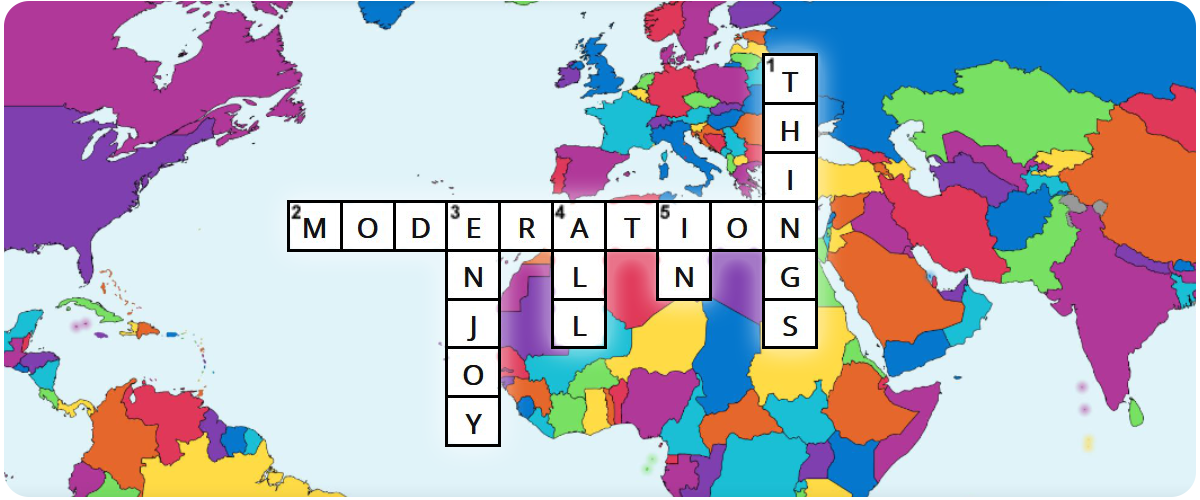“The aim of art is to represent not the outward appearance of things, but their inward significance.” ― Aristotle
As with all behavior we may wish to change, the first thing to ask yourself when it comes to gaming is: “Is this experience adding to my life or taking away from it?” Not all video games are created equal. Some are artistic projects created with the intention to elevate the mind and spirit. Others provide a more mental, technical or physical challenge, others still are little more than electronic novelties distilled down to the most attention-grabbing addictive parts.
This list loosely ranks types of games in terms of their “healthfulness”. But it’s important to remember that different people are affected in different ways. Some people get hooked on less addictive things. Others can resist the more addictive types of entertainment and still find the experience fulfilling. So consider this not as a definitive guide, but as a prompt to analyze your own relationship to gaming.
Without further ado…
From worst to best:
Mobile (often “Freemium”) games that exist only to keep you hooked.
Addictive potential: 🚬🚬🚬🚬🚬
Value added to real life: 💀
These games are basically gambling machines minus the chance to actually win anything tangible. If your goal is to be more present in the real world, then mobile games in general are something to avoid. Mobile freemium games are on the same mental-health level as TikTok or Instagram. At best you’re still subjected to a ton of ads. Learn to exist in the moment. It’s healthy to be bored sometimes.
If you’ve asking yourself “should I buy or grind?” consider a third option- putting the phone down.
Games that can't truly be finished.
Addictive potential: 🚬🚬🚬🚬
Value added to real life: ⭐
The games who’s gameplay resembles a “fun job” and who's only reason for existing is to keep you playing indefinitely. Ask yourself, is this a fulfilling experience or a prolonged distraction? Are the hours invested productive in a way that’s meaningful? What is it exactly you’re grinding for?
Examples: MMOs, Leage of Legends, Destiny II, No Man’s Sky.
Educational/puzzle games
Addictive potential: 📱📱📱
Value added to real life: ⭐⭐⭐
Context and intentionality is very important here, because most educational games are on mobile devices these days, and mobile devices are addictive unto themselves. Doing a crossword puzzle to unwind before bed is very different than mindlessly opening Wordle because you can’t stand to be bored for the two minutes before your train arrives.
While not relying on your phone to alleviate every tiny instance of uncomfortableness is the most obvious and healthful option- if you’re going to be using the device anyway, it might as well be for something educational. And when used with intention, many educational games are really excellent ways to learn something!
If you like doing puzzles before bed to wind down, consider setting a timer so they only work after a given hour. Or if you can- put them on a dedicated second device.
Examples: StudyGe, Wordle, Daily Crossword/Sudoku, DuoLingo/Babble
Competitive online multiplayer games
Addictive potential: 🚬🚬
Value added to real life: ⭐⭐
Like IRL sports minus any physical benefits (well, maybe they help with reaction time?), the healthfulness of these games can vary a lot form person-to-person depending on use. Bangin’ out a few rounds of Fortnite with some friends is a harmless way to relax and have fun, but doing it for hours every day is obviously not. To summarize: games in this category are like having pizza for dinner. Pointless fun that doesn’t do much for us in the long term, but (in moderation) won’t really hurt much either.
Examples: Call of Duty/Fortnite/Rocket League etc.
Sandbox/strategy games
Addictive potential: 🚬
Value added to real life: ⭐⭐⭐
Games without clear paths or goals. Games that encourage the player to create and solve missions of their own devising. “Virtual lego sets” where the ultimate objectives are guided (or decided entirely) by the player. The types of games where creative thinking is a requirement to playing it properly. These games can be addictive, but they also have a way of stretching your brain and flexing it’s creativity.
Examples: Minecraft, Kerbal Space Program, Civilization series1
Games that end.
Addictive potential: 🌲 (Hard to get addicted to something that ends).Value added to real life: ⭐⭐⭐⭐⭐
Someone who watches a lot of movies is considered cultured, but someone who watches the same movie for hundreds of hours is considered mentally ill. The “healthiest” types of games take many forms- rich, story-driven experiences, creative puzzle games, artistic indie titles, etc. But the one thing these games have in common is that they end.
It’s remarkable today the amount of titles (AAA or otherwise) that pretend to be “story driven” but don’t actually have an ending. Most in this category are single-player, but they don’t have to be.
Examples: Return of the Obra Dinn, Firewatch, Portal, Fallout, Inside, Resident Evil, etc.
Bonus Tip: Retro games
Retro gaming is having a bit of a moment right now. While it’s probably not accurate to describe most retro titles as “super deep, meaningful, artistic endeavors”, many were created in an atmosphere where describing a game as “addictive” didn’t carry such a literal (and negative) interpretation. Due to limitations of the time, many retro games are simply paced out in such a way that’s not as fine-tuned to be as brain-hijacking as a lot of modern titles.
Most older games just aren’t designed with marathon sessions in mind, and they’re also ad-free and weren’t engineered to compete for your attention during the five minutes while waiting for the bus. As a result their pacing has a way about it that can feel a little more natural. There are never collectibles or online achievements either which contributes to a more present experience. Plus- older games can be an interesting exploration of technological history!
In Conclusion:
Enjoyment of the arts is not something to be avoided in the pursuit of improved mental health, in fact it’s correlated with it2. But we live in a world with infinite media and entertainment options that our brains simply didn’t evolve to handle. Curating what you consume, focusing on “whole grains” and not “junk food” is an important first step to feeling more grounded and present in your life and community. If you are the kind of person that escapes into video games when you are stressed, bored or anxious, consider what sort of experience you’re having. Is it fulfilling? Do you leave feeling more centered? Or is it an avoidant behavior where the only result is that time somehow passed without your realizing it?
Video games are not inherently harmful in the way that other addictive activities such as gambling or smoking are, but the type of games you play (and the amount you play them) can have an outsized effect on how you view your own life. And like with all media- the more thought-provoking (and less addicting) you can make your gaming experience, the more it can help you feel grounded.
Thank you for reading, if you appreciate my writing please consider subscribing. If you’re already subscribed- consider sharing a post somewhere it might make an impact. This newsletter is 100% reader-supported, and it’s really motivating to me when I see people sharing and discussing it.
Civilization is a hard one to categorize, because while it’s open-endedness and potential for creative thinking are certainly prominent- for this author? It’s worse than crack.
https://pubmed.ncbi.nlm.nih.gov/21609946/











For certain personality types, sandbox games can be a near infinite time sync and rather addictive.
The ADHD engineer type with hyper focus fixating on some simulation games tends to line up with my experiences.
How do you feel about Xbox Achievements and PlayStation Trophies in regards to the topic of this article?